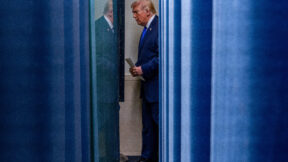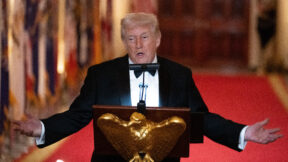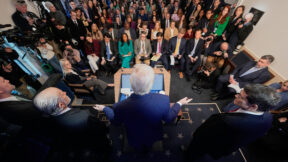Blinken Reiterates That the U.S. Does ‘Not Support Taiwan Independence’ After Meeting Xi In Beijing
Secretary of State Antony Blinken reiterated the United States’ unequivocal opposition to Taiwanese independence at a Monday press conference in Beijing.
Blinken has spent the last two days holding high-level meetings in the Chinese, including with Chairman Xi Jinping. The meetings followed comments from President Joe Biden indicating that he would seek a détente with the Chinese and Blinken’s issuance of a noticeably muted statement on the anniversary of the Tiananmen Square massacre that was widely seen as an extension of a new, conciliatory approach.
On Monday, Blinken addressed increased Chinese aggression toward Taiwan, while assuring the mainland regime that it would not recognize Taiwan as an independent nation.
“I raised U.S. concerns, shared by a growing number of countries, about the PRC’s [People’s Republic of China] provocative actions in the Taiwan Strait as well as in the East and South China Seas,” said Blinken. He continued:
On Taiwan, I reiterated the longstanding U.S. One China policy. That policy has not changed. It’s guided by the Taiwan Relations Act, the Three Joint Communiques, the Six Assurances. We do not support Taiwan independence, we remain opposed to any unilateral changes to the status quo by either side. We continue to expect the peaceful resolution of cross-strait differences. We remain committed to meeting our responsibilities under the Taiwan Relations Act, including making sure that Taiwan has the ability to defend itself.
The secretary’s comments on Monday represent a continuation of, rather than a break with, longstanding U.S. policy, which has at once held that Taiwan is a part of China, but in practice has defended Taiwan’s autonomy.
Nevertheless, some observers — and especially conservative critics of the Biden administration — expressed frustration with Blinken’s stressing of this concession on Chinese soil.
“Imagine a Trump official going to Russia and saying, ‘We do not support Ukrainian independence,'” tweeted the Federalist’s David Harsanyi. “Those ‘candid’ talks between Blinken and China were meant to make the US look weak,” argued Townhall’s Gabriella Hoffman.
The Global Times, a state-run Chinese propaganda outlet, was quick to promote Blinken’s stated opposition to Taiwanese independence online.
The US stands by the commitments made by President Biden, namely the United States does not seek a new Cold War, it does not seek to change China’s system, its alliances are not directed at China, it does not support “Taiwan independence”, and it does not seek conflict with… https://t.co/D1qsxuhE81
— Global Times (@globaltimesnews) June 19, 2023
Proponents of the One China policy have long touted its success so far in averting open hostilities between the PRC and Taiwan, but its opponents have panned it as incoherent, given America’s interest in defending Taiwan and de facto recognition of its right to self-determination.
New: The Mediaite One-Sheet "Newsletter of Newsletters"
Your daily summary and analysis of what the many, many media newsletters are saying and reporting. Subscribe now!






Comments
↓ Scroll down for comments ↓